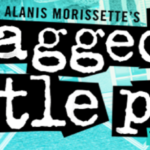From the WRGW Blog archives. Originally published on November 16, 2020.
It’s not much of a debate that the US has been at a constant state of war since 9/11. Afghanistan, Iraq, Libya, countless other countries we don’t hear about on the news. In the past, wartime has endowed any country with a flourishing expressive period. Such traumatic and challenging experiences were imprinted on the mind and the soul of the nation as it was felt by a whole people. It begs the question, we’ve fought with a bunch of countries in the past two decades, where is the music of the forever war? To answer this, we’re going to go back quite a ways and discuss previous war time tunes in American history.
More Americans died in the US Civil War than any other war in American history. It was a devastating war for the entire nation, north and south, over the issue of slavery. When Robert E. Lee surrendered to Ulysses S. Grant on April 9, 1865, 3,000 people took to the streets in Washington DC and sang outside the White House demanding President Lincoln to make a public appearance. The next day, Lincoln faced the jubilant crowds and made a simple request, saying:
I have always thought ‘Dixie’ one of the best tunes I have ever heard. Our adversaries over the way attempted to appropriate it, but I insisted yesterday that we fairly captured it. [Applause.] I presented the question to the Attorney General, and he gave it as his legal opinion that it is our lawful prize. [Laughter and applause.] I now request the band to favor me with its performance.
The band in accordance with the request played “Dixie” and at its conclusion played Yankee Doodle. In the Civil War, music played an important role in displaying the identity of various factions. “Dixie” of course was the south’s song of choice, being so popular the Union even made a parody version, singing, “Each Dixie boy must understand that he must mind his Uncle Sam” in the same tune.
Even the massive Irish immigrant volunteer brigade, the ‘Fighting 69th’ had songs of their own. In “The Irish Volunteer” they sang, “Then fill the ranks and march away! No traitors do we fear! We’ll drive them all to blazes, says the Irish volunteer!” These songs of identity played the role of signaling to one’s cause for fighting and from where they came to volunteer to drive the rebels back.
Skipping forward ahead in time by a fair margin, WWII facilitated a massive amount of cultural expression. In terms of the war effort WWII has been the second most deadly war in American history, mobilizing the entire industry, manpower, and will of the American people to defeat fascism abroad in Europe and the Pacific.
For that reason, there is no surprise that the music of the time reflected that. The most famous song being “Blood on the Risers” about a rookie paratrooper finding peace in heaven after dying in a jump. It is to the tune of “John Brown’s Body” and “The Glory Hymn of the Republic”, an American folk tune refitted to different times and meanings. The lyrics include:
The days he lived and loved and laughed kept running through his mind.
He thought about the girl back home, the one he left behind.
He thought about the medicos and wondered what they’d find.
And he ain’t gonna jump no more.
Similar to the Civil War, the American experience in World War II was a massive undertaking by the entire country. The music of WWII reflected the collective experience of soldiers or sailors fighting, not as much as a signal of identity as the Civil War.
Moving ahead further in time, the American experience in Vietnam forged a unique stamp on American war time music. Unlike the two previous wars, Vietnam was not supported by a massive majority of the population. The draft in particular was seen as unfair, and predatory. Any young man in high school or college was extremely worried about getting drafted and having to fight a deadly war for no clear benefit. For this reason, the music created out of this period was largely in protest against the war. Although in protest, these songs were still created out of the national experience of war, as was the same in the Civil War and WWII.
There are too many to name but “Fortunate Son” by Creedence Clearwater Revival is one that sticks out to many about the Vietnam War. Even a song made by troops fighting was meant to show the brutality and pointlessness of the war. In “Napalm Sticks to Kids” soldiers of the 1st division of the 9th Cavalry Regiment sing:
Oxcars rollin’ down the road
Peasants with a heavy load
They’re all V.C. when the bombs explode
Napalm sticks to kids
All of these wars in American history inspired massive cultural expression through music, either for or against the war. So where is this war’s music? The war in Afghanistan has been the longest in American history. Over 6,000 Americans have died in Iraq and Afghanistan, but we haven’t had anything close to the cultural moments of Vietnam, the Civil War, or WWII.
It might be because we have not had to actively draft soldiers since the end of Vietnam. The military today is made up entirely of volunteer members, being sent across the world to fight wars. In no way has this forever war changed the home front at the scale that previous wars have. After the Obama administration, many people have forgotten we still have troops all across the Middle East. With no draft, regular Americans don’t have to worry about being sent over.
Within my periphery of modern music, the closest song that comes close to an anti-war message is the 2013 track “Careers in Combat” by Brooklyn based rock band Parquet Courts off the album Light Up Gold. The relatively short song has this to say about austerity, war, and work:
There are no more summer lifeguard jobs
There are no more art museums to guard
The lab is out of white lab coats,
Cause there are no more slides and microscopes
But there are still careers in combat, my son
There are still careers in combat, my son


